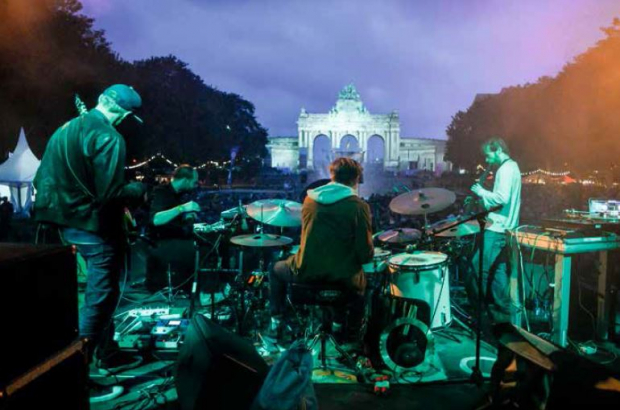- Daily & Weekly newsletters
- Buy & download The Bulletin
- Comment on our articles
Fête de la Musique promotes francophone artists and sends a message of unity
Belgium’s summer festival season is just around the corner, and is traditionally kicked off by the Fête de la Musique. Every year at the summer solstice, the music bash takes over Brussels and cities across Wallonia with an eclectic musical programme that is completely free.
This 32nd edition, taking place from 21 to 25 June, will stage hundreds of concerts in more than 40 towns, celebrating the region’s rich musical creativity and variety.
Open to all musical styles and featuring amateurs as well as professional bands and musicians, it’s a family-friendly, inclusive cultural happening that has something for all tastes.
“Fête de la Musique is a unifying event. It assembles artists of all genres, ages and career levels and an equally diverse public, bringing together children, teenagers and adults,” says Claire Monville, director of Conseil de la Musique, an institution aimed at promoting music from French-speaking Belgium that oversees the organisation of the festivities.
Based on the goal of making culture accessible to everyone, the concept hasn’t changed since it was launched in France in 1982 by French minister of culture Jack Lang. He took up the idea from American musician and radio presenter Joel Cohen who worked for Radio France in the 70s. Neighbouring Belgium soon followed with its first edition in 1985, and since then Fete de la Musique has been a success story that has spread to more than 120 countries all around the globe.
Unlike other places, Belgium doesn’t impose a theme when it comes to the programming – music is the only one. Accordingly, each town is free to shape its local agenda as it sees fit. “Every organiser decides on their own,” Monville explains. “The Conseil de la Musique is only responsible for organising the main event in Cinquantenaire Park in Brussels.”
Wallonia’s capital, Namur, for example, places an emphasis on connecting the music scene with other cultural entities, bringing music closer to the people and waking up the city centre by organising concerts in unlikely places from museums to hairdressers.
“This approach is much more in the spirit of Fête de la Musique than focusing on big stages and famous names, which we’ve done in the past,” says Philippe Gayet, who is responsible for Namur’s festival programme.
But how do the musicians themselves feel about the event, which might have a hard time competing with the high number of renowned festivals in Belgium such as Dour or Couleur Cafe? “I like that Fête de la Musique doesn’t only attract the usual concert-goers, but a wider public who might be less familiar with what we do,” says Gordon Delacroix, frontman of Brussels indie pop band Recorders. “We love playing live, and here we get the chance to perform for a part of the population that maybe wouldn’t have come to see us play otherwise. It’s a great opportunity.”
Aurélio Mattern (Sonnfjord, Lucy Lucy, Paon) agrees: “It’s really important for the promotion of a band to play in front of a crowd that doesn’t know it yet. You’re forced to convince your audience in just 45 minutes.”
With its relaxed, non-profit attitude, Fête de la Musique is also an ideal opportunity for newbies to prove themselves on stage. “It’s a great way to put forward our young talents and present them to a wider public. We always try to programme a maximum of groups,” says Emy Dehez, booker at Belgian agency Progress Booking.
Mattern confirms: “My favourite memory from Fête de la Musique is when we played there with Lucy Lucy at Parvis de Saint-Gilles. It was at the beginning of our career and I was so excited to play in front of such a big crowd.”
As well as bringing a lot of musicians out of the shadows while enabling the public to discover all kinds of musical genres, there is also a political message attached to the event, one that advocates participation and democratisation. “Open-mindedness, respect and understanding are created by seeing and hearing things that are new and different. The Fête de la Musique is a way of reaffirming culture’s importance for bringing people together,” Monville says.














